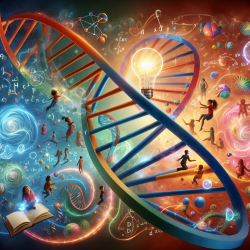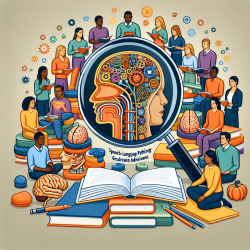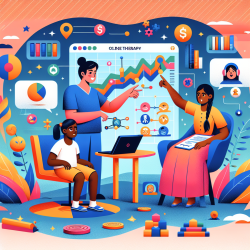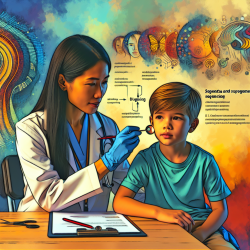Introduction
Understanding the factors that contribute to children's cognitive abilities is crucial for educators and therapists alike. A recent study published in Nature Communications highlights the significant genetic component shared between reading and mathematics abilities in children aged twelve. This finding underscores the importance of considering both genetic and environmental factors when developing educational strategies.
Key Findings
The study utilized twin and genome-wide analyses to estimate that approximately half of the observed correlation between reading and mathematics abilities is due to shared genetic effects. This suggests that while genetics play a substantial role, the learning environment also significantly impacts a child's cognitive development.
Implications for Practitioners
For practitioners in the field of speech language pathology and education, these findings offer several actionable insights:
- Holistic Assessment: When assessing a child's learning abilities, consider both genetic predispositions and environmental influences. This comprehensive approach can help tailor interventions more effectively.
- Collaborative Efforts: Encourage collaboration between geneticists, educators, and therapists to create multidisciplinary strategies that address both genetic and environmental factors.
- Personalized Learning Plans: Develop personalized learning plans that accommodate individual genetic predispositions while optimizing the learning environment to enhance both reading and mathematics skills.
Encouraging Further Research
While this study provides valuable insights, it also opens the door for further research. Practitioners are encouraged to explore the following areas:
- Longitudinal Studies: Conduct longitudinal studies to observe how genetic and environmental factors interact over time and impact cognitive development.
- Intervention Studies: Investigate the effectiveness of different educational interventions in modifying the impact of genetic predispositions on learning outcomes.
- Cross-Cultural Research: Explore how cultural and socio-economic factors influence the interplay between genetics and learning abilities across diverse populations.
Conclusion
The study's findings highlight the intricate relationship between genetics and the learning environment in shaping children's cognitive abilities. By integrating these insights into practice, educators and therapists can better support children's development in both reading and mathematics.
To read the original research paper, please follow this link: The correlation between reading and mathematics ability at age twelve has a substantial genetic component.










